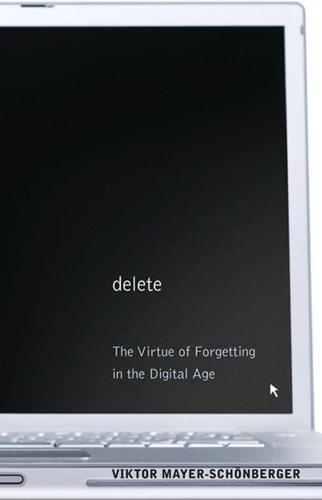
Delete: The Virtue of Forgetting in the Digital Age
by
Viktor Mayer-Schönberger
Published 1 Jan 2009
The second reason why we may no longer be the masters of our information treasures is that each online interaction itself—even if one does not share files—is information about oneself that one’s interaction partner(s) now have, and can possibly share with others. If I order a book at Amazon.com, I leave behind an information trail that Amazon uses—among other things—to recommend books to me. Perhaps one would expect that. But the same is true when I only browse Amazon’s online store, even though I have not explicitly told Amazon to watch my browsing habits. They do it anyway. At times, I benefit from it when Amazon presents a selection of products that might appeal to me based on the information trail I have left behind. Most online retailers do the same, as do companies offering web-based e-mail, social networking, and information sharing.
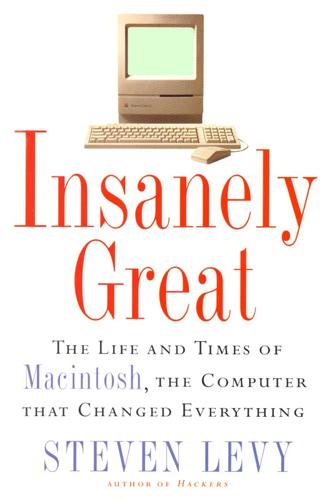
Insanely Great: The Life and Times of Macintosh, the Computer That Changed Everything
by
Steven Levy
Published 2 Feb 1994
Using his home as a development center, Atkinson led a team of several programmers in creating the product. It took almost two years, but by the time it was complete, HyperCard was a brilliant exploitation of the Macintosh's abilities. The program made it abundantly clear that the Mac was the first engine that could vivify the hypertext dream-one could hack out Vannevar Bush-like information trails by a few simple manipulations and clicks of the mouse. John Sculley himself took great pleasure in introducing the product at the August 1987 Macworld Expo, calling it the most important product he had been associated with since coming to Apple. Later, he claimed design credit for many of its capabilities, including its ability to connect to optical media such as CD-ROM disks.
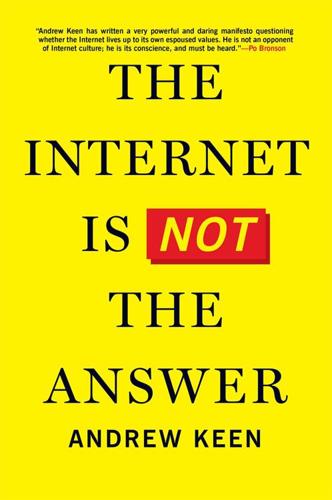
The Internet Is Not the Answer
by
Andrew Keen
Published 5 Jan 2015
There were no trails yet on the Internet, no network of intelligent links, no process of tying two items together on the network. The World Wide Web In 1960, a “discombobulated genius” named Ted Nelson came up with the idea of “nonsequential writing,” which he coined “hypertext.”40 Riffing off Vannevar Bush’s notion of “information trails,” Nelson replaced Bush’s reliance on analog devices like levers and microfilm with his own faith in the power of digital technology to make these nonlinear connections. Like Bush, who believed that the trails on his Memex “do not fade,”41 the highly eccentric Nelson saw himself as a “rebel against forgetting.”42 His lifelong quest to create hypertext, which he code-named Xanadu, was indeed a kind of rebellion against forgetfulness.
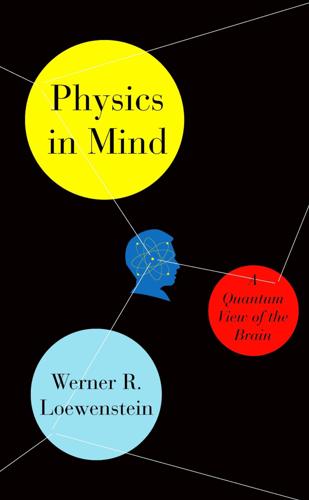
Physics in Mind: A Quantum View of the Brain
by
Werner Loewenstein
Published 29 Jan 2013
The electromagnetic forces in the demon’s cavity entrap the molecule of choice, but that’s not enough for recognition. Not even the best mousetrap could by any stretch of imagination be called a cognitive device. Cognition is something infinitely more subtle. We try to come to grips with it little by little in this book, as we move up the information trail in the brain. But here let me say that, at the very minimum, cognition entails an information gain, a net profit—and our protein demon reaps it through a skillful thermodynamic transaction. Much of that transaction is hidden to our eyes, and it takes the information lens to spot it. Figure 2.6.
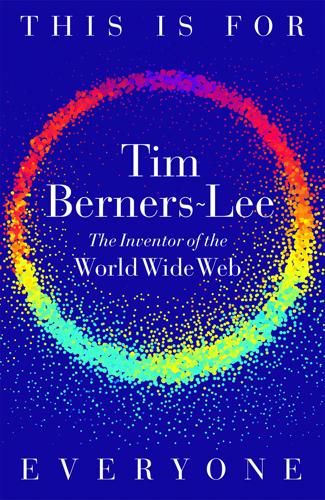
This Is for Everyone: The Captivating Memoir From the Inventor of the World Wide Web
by
Tim Berners-Lee
Published 8 Sep 2025
You would then be free to link this data to whichever tax calculator you were using, or whatever budget app you preferred. And everything could go in your pod! Your phone records, your Facebook relationships, your comment history on YouTube, etc. Rather than have all this stuff siloed off with different providers across the web, you’d be able to store your entire digital information trail in a single private repository. In its earliest conception, we tended to present a user’s stored data as a diagram, with circles and arrows. This was a little too abstract for most people, so some of my undergrad students at MIT built a tabulator, which was the first really functional Solid product.
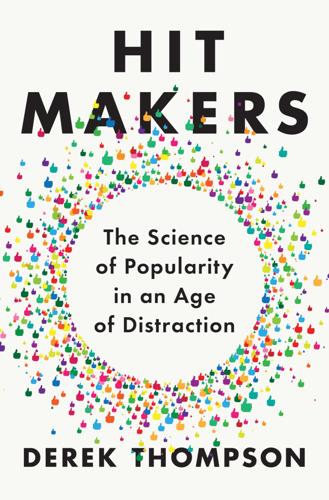
Hit Makers: The Science of Popularity in an Age of Distraction
by
Derek Thompson
Published 7 Feb 2017
It’s difficult to precisely track word-of-mouth buzz or the spread of a fashion (like skinny jeans) or an idea (like universal suffrage) from person to person. So, by degrees, “That thing went viral” has became a fancy way of saying, “That thing got big really quickly, and we’re not sure how.” But there is a place where ideas leave an information trail: on the Internet. When I post an article on Twitter, it is shared and reshared, and each step of this cascade is traceable. Scientists can follow the trail of e-mails or Facebook posts as they move around the world. In the digital world, they can finally answer the question: Do ideas really go viral?

Financial Statement Analysis: A Practitioner's Guide
by
Martin S. Fridson
and
Fernando Alvarez
Published 31 May 2011
It is no small task to dissect the income statement of a corporation that makes frequent acquisitions and discloses as few details as possible. Nevertheless, an energetic analyst can go a long way toward segregating ongoing operations from purchased earnings growth. Acquisitions of public companies leave an information trail in the form of regulatory filings. Conscientious searching of the media, including the industry-specialized periodicals and local newspapers, may yield useful tidbits on acquisitions of private companies. Such investigations will frequently turn up the phrase “terms of the acquisition were not disclosed,” but reliable sources may provide informed speculation about the prices paid.
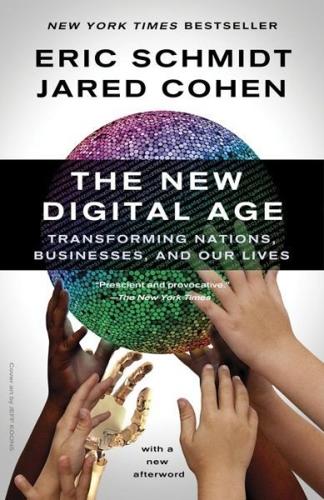
The New Digital Age: Transforming Nations, Businesses, and Our Lives
by
Eric Schmidt
and
Jared Cohen
Published 22 Apr 2013
The exposure of atrocities in real time and in front of a global audience is vital, as is permanently storing it and making it searchable for everyone who wants to refer to it (for prosecutions, legislation or later study). Governments and other aggressors may have the military advantage with guns, tanks and planes, but they’ll be fighting an uphill battle against the information trail they leave behind. If a government attempts to block citizen communications, it may be able to stifle some of the evidence flowing through and out of the country, but the flow will continue. More important, the presence of this evidence, even if disputed at the time, will affect how the conflict is handled, resolved and considered well into the future.
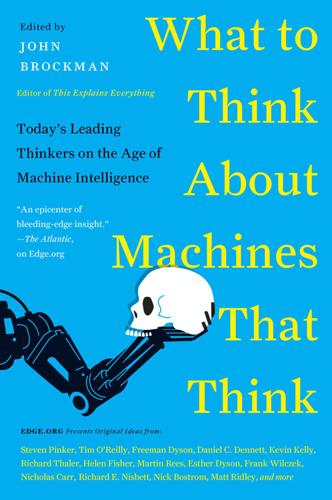
What to Think About Machines That Think: Today's Leading Thinkers on the Age of Machine Intelligence
by
John Brockman
Published 5 Oct 2015
For although our own typical route to understanding the world goes via a host of such interactions, theirs might not. Such systems will doubtless enjoy some (probably many and various) means of interacting with the physical world. These encounters will be combined, however, with exposure to rich information trails reflecting our own modes of interaction with the world. So it seems possible that they could come to understand and appreciate soccer and baseball just as much as the next person. An apt comparison here might be with a differently abled human being. There’s lots more to think about here, of course.
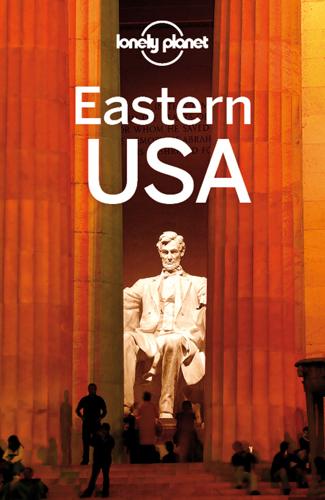
Eastern USA
by
Lonely Planet
It has a top-notch trail system, a renovated lighthouse to visit (or live in, as a volunteer lighthouse keeper) and miles of beach. SLEEPING BEAR DUNES NATIONAL LAKESHORE This national park stretches from north of Frankfort to just before Leland, on the Leelanau Peninsula. Stop at the park’s visitor center ( 231-326-5134; www.nps.gov/slbe; 9922 Front St; 8:30am-6pm Jun-Aug, to 4pm Sep-May) in Empire for information, trail maps and vehicle entry permits (week/annual $10/20). Attractions include the famous dune climb along Hwy 109, where you trudge up the 200ft-high dune and then run or roll down. Gluttons for leg-muscle punishment can keep slogging all the way to Lake Michigan, a strenuous 1½-hour trek one way; bring water.

France (Lonely Planet, 8th Edition)
by
Nicola Williams
Published 14 Oct 2010
If you don’t feel like taking on the full-blown route, it’s possible to divide the GR20 into smaller sections: Vizzavona makes a convenient halfway stage. Alternatively you could take on one of Corsica’s other grandes randonnées; the Maison d’Information Randonnées du Parc Naturel Régional de Corse ( 04 95 51 79 10; www.parc-naturel-corse.com) provides information. Trails within Corsica: Mare a Mare Centre A seven-day trail linking Porticcio (south of Ajaccio) with Ghisonaccia. Open May to November. Mare a Mare Nord Cargèse (north of Ajaccio) to Moriani (40km south of Bastia), one route (of two alternatives) passing through the forest of Vizzavona and the village of Vénaco.

USA Travel Guide
by
Lonely, Planet
It has a top-notch trail system, a renovated lighthouse to visit (or live in, as a volunteer lighthouse keeper) and miles of beach. SLEEPING BEAR DUNES NATIONAL LAKESHORE This national park stretches from north of Frankfort to just before Leland, on the Leelanau Peninsula. Stop at the park’s visitor center ( 231-326-5134; www.nps.gov/slbe; 9922 Front St; 8:30am-6pm Jun-Aug, to 4pm Sep-May) in Empire for information, trail maps and vehicle entry permits (week/annual $10/20). Attractions include the famous dune climb along Hwy 109, where you trudge up the 200ft-high dune and then run or roll down. Gluttons for leg-muscle punishment can keep slogging all the way to Lake Michigan, a strenuous 1½-hour trek one way; bring water.